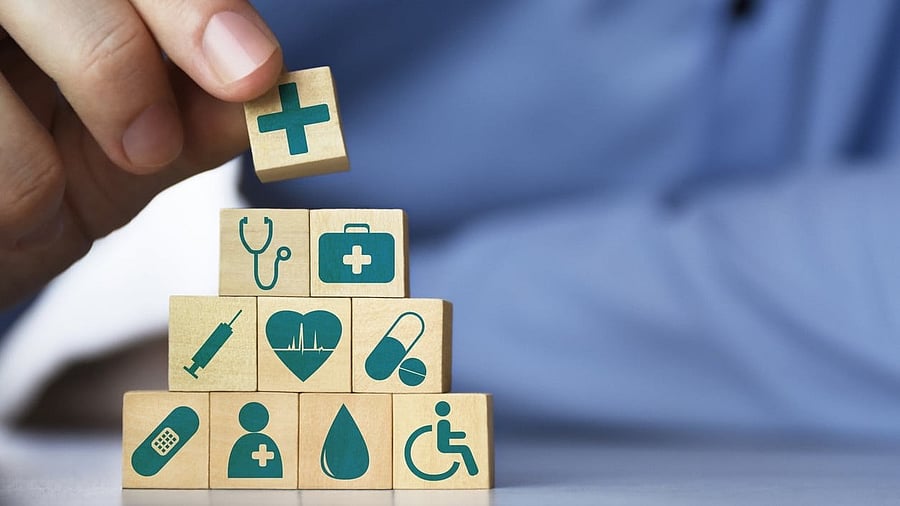
Representative image for health insurance
Credit: iStock Photo
Bengaluru: Nearly 96 per cent of people with disabilities in Tumakuru and 88% in Bengaluru Rural lack health insurance, and over 90 per cent have not accessed health services or assistive aids in the past year, a new report has found.
The study, conducted over 12 months by the National Centre for Promotion of Employment for Disabled People (NCPEDP) and NGO Astha, surveyed 758 people — 388 from Bengaluru Rural and 370 from Tumakuru. Of these, 55% were men. While 46% of respondents in Bengaluru Rural were aged 18–30, nearly half in Tumakuru were between 31–45. Most had locomotor disabilities.
Investigators collected data through interviews, hospital visits, and inputs from disability welfare offices and healthcare professionals. They found nearly 70% of respondents in both districts were unemployed and entirely dependent on family. Literacy was low, with 47% of respondents in Bengaluru Rural and 24% in Tumakuru unable to read or write. Most families earned less than Rs 1 lakh annually.
Though most in Bengaluru Rural had Unique Disability ID (UDID) cards, half the respondents in Tumakuru did not — citing lack of awareness, interest, or documentation issues.
The report highlighted widespread exclusion — economic, educational, and social — and noted increased vulnerability to climate-related health impacts. Many said their disabilities had cost them opportunities and aspirations.
"The tragedy of the disability sector is that even the basics aren’t in place,” said Arman Ali, Executive Director, NCPEDP. “For persons with disabilities, health is a matter of life and death — assistive aids cannot be treated as populist schemes.”
The findings were followed by a panel discussion on community-based healthcare, sensitisation of frontline workers, and the need for collective action.
The report will soon be submitted to Chief Secretary Shalini Rajneesh and Health Principal Secretary Harsh Gupta.
Key recommendations
Disability-friendly public services.
Subsidised healthcare and better access to insurance.
Census aligned with the Rights of Persons with Disabilities (RPwD) Act, 2016.
Updating disability IDs.
Community-based health management with private and NGO participation.
Caregiver training through self-help groups.